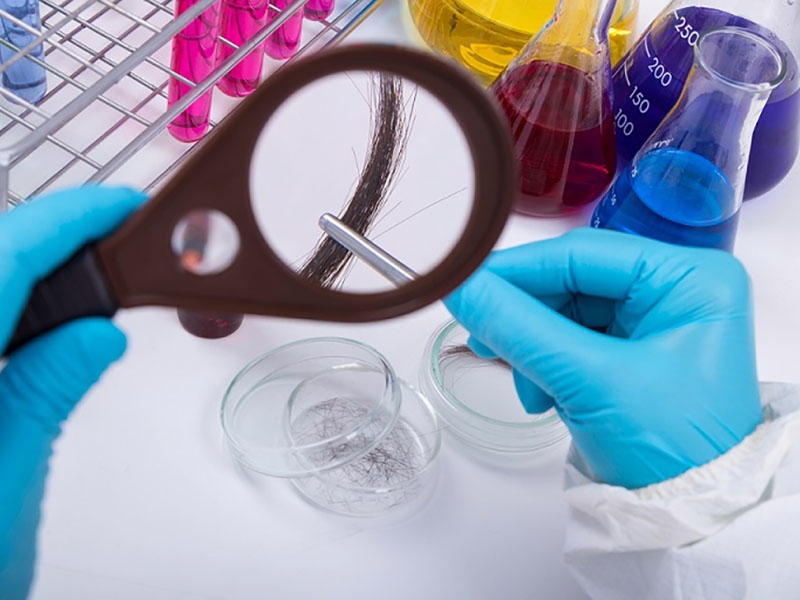
Toxicological Examination
Watch our video about Toxicological Examination
What is a Toxicological Examination?
A Toxicological Examination is a diagnostic test designed to detect the presence of toxic substances, such as drugs, chemicals, or environmental pollutants, in the body. This examination is essential for assessing exposure to harmful substances and identifying their potential effects on health. The test may involve analysing various biological samples, including blood, urine, hair, or saliva, to detect toxins or measure their levels.
At Clinic Consultation, our Toxicological Examinations are conducted using state-of-the-art technology to ensure accurate and reliable results. This test is a critical tool for diagnosing poisoning, monitoring medication adherence, or assessing workplace safety compliance.
What is the Purpose of a Toxicological Examination?
The primary purpose of a Toxicological Examination is to evaluate exposure to potentially harmful substances and determine their impact on the body. It helps identify toxins, supports medical interventions, and ensures compliance with regulatory requirements.
This test is widely used in occupational health, forensic investigations, and medical diagnostics. By detecting toxins early, it allows for timely treatment, mitigating the adverse effects of exposure and safeguarding overall health.
How Does a Toxicological Examination Work?
During a Toxicological Examination, a biological sample such as blood, urine, hair, or saliva is collected from the patient. The sample is then analysed in a specialised laboratory using advanced techniques, such as gas chromatography, mass spectrometry, or immunoassays, to detect the presence of specific substances.
The test is non-invasive or minimally invasive, depending on the sample type. Results are typically available within a few days, and a detailed report is provided to guide further medical or legal action. At Clinic Consultation, we ensure a smooth and efficient process, prioritising patient comfort and privacy.
What Are the Types of Toxicological Examination?
Toxicological Examinations are tailored to the specific needs of the patient or situation. Common types include:
Drug Testing
Detects the presence of prescription or illicit drugs in the body. This is commonly used in workplace screenings or addiction treatment programmes.Alcohol Testing
Measures blood alcohol concentration (BAC) to evaluate recent alcohol consumption, often used in legal or medical contexts.Heavy Metal Testing
Identifies toxic levels of metals such as lead, mercury, or arsenic, which can cause severe health problems with prolonged exposure.Environmental Toxin Testing
Assesses exposure to pollutants like pesticides or industrial chemicals, crucial for individuals working in hazardous environments.Medication Monitoring
Ensures patients are adhering to prescribed treatments and evaluates the levels of therapeutic drugs in the bloodstream.Hair Follicle Testing
Provides a long-term view of drug or toxin exposure, often used in forensic investigations or chronic exposure assessments.Emergency Toxicology
Conducted in acute situations, such as suspected poisoning, to identify substances requiring immediate treatment.
Each type of Toxicological Examination is designed to address specific concerns, and our specialists at Clinic Consultation ensure that the appropriate test is selected for each patient.
What Conditions Can Be Detected Through a Toxicological Examination?
Toxicological Examinations can identify a range of conditions, including:
Drug Overdose
Detects dangerous levels of prescription or recreational drugs.Alcohol Poisoning
Measures excessive alcohol levels that may pose a health risk.Heavy Metal Toxicity
Identifies harmful exposure to metals like lead or mercury.Chronic Pesticide Exposure
Detects the accumulation of pesticides in the body, which can lead to long-term health effects.Therapeutic Drug Monitoring Issues
Evaluates whether prescribed medications are within therapeutic ranges.Workplace Chemical Exposure
Identifies hazardous exposure in industrial or agricultural settings.Environmental Poisoning
Diagnoses toxicity from pollutants or contaminated water sources.
When is a Toxicological Examination Indicated?
Toxicological Examinations are recommended in the following situations:
Suspected Drug Overdose
Urgent evaluation of toxic substances for immediate medical intervention.Workplace Safety Compliance
Routine testing to ensure employees are free from substances that could impair performance.Medical Monitoring
Regular testing for patients on high-risk medications to prevent toxicity.Suspected Heavy Metal Poisoning
For individuals exposed to contaminated environments or industrial materials.Substance Abuse Treatment
Monitoring progress and compliance during addiction recovery programmes.Forensic Investigations
Testing for toxins as part of legal or criminal investigations.Unexplained Symptoms
Chronic fatigue, headaches, or gastrointestinal issues that may indicate environmental or chemical exposure.
Pre- and Post-Toxicological Examination Care
Before the Procedure:
- Inform your doctor of any medications or supplements you are taking.
- Avoid certain foods or substances, such as caffeine or alcohol, if instructed.
- Follow specific fasting instructions if required.
After the Procedure:
- Resume normal activities unless otherwise advised.
- Discuss the results with your doctor to determine the next steps.
- Follow any recommendations for further testing or treatment based on the findings.
At Clinic Consultation, we provide clear pre- and post-test guidance to ensure accurate results and optimal patient care.
What Are the Contraindications for a Toxicological Examination?
While generally safe, Toxicological Examinations may not be suitable for individuals with:
- Severe needle phobia (if a Blood test is required).
- Pregnancy, where specific substances may affect the results.
- Allergies to certain testing materials or equipment.
- Medical conditions that preclude sample collection, such as skin disorders in hair testing.
Our specialists assess individual needs and limitations to recommend the most appropriate testing methods.
What Are the Alternatives to a Toxicological Examination?
For patients unable to undergo standard Toxicological Examinations, alternative diagnostic options include:
- Clinical Observation: Monitoring symptoms to identify potential toxicity.
- Saliva or Urine Tests: Less invasive options compared to blood or hair sampling.
- Environmental Assessments: Testing the surrounding environment for contamination.
- Non-Invasive Imaging: Using imaging techniques to identify signs of toxicity, such as organ damage.
Our team at Clinic Consultation ensures the most suitable diagnostic approach is chosen based on the patient’s condition and circumstances.
Book Your Toxicological Examination at Clinic Consultation
Toxicological Examinations are a vital tool for diagnosing and monitoring exposure to harmful substances. At Clinic Consultation, our experienced team provides accurate and timely testing to support your health and well-being. Schedule your examination online today and take control of your health with expert care.
Click here to schedule an appointment online